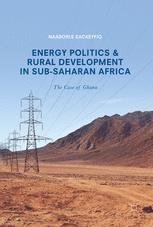

Most ebook files are in PDF format, so you can easily read them using various software such as Foxit Reader or directly on the Google Chrome browser.
Some ebook files are released by publishers in other formats such as .awz, .mobi, .epub, .fb2, etc. You may need to install specific software to read these formats on mobile/PC, such as Calibre.
Please read the tutorial at this link: https://ebookbell.com/faq
We offer FREE conversion to the popular formats you request; however, this may take some time. Therefore, right after payment, please email us, and we will try to provide the service as quickly as possible.
For some exceptional file formats or broken links (if any), please refrain from opening any disputes. Instead, email us first, and we will try to assist within a maximum of 6 hours.
EbookBell Team

4.7
86 reviewsThis book addresses the paradox of uneven electricity in one of the fastest growing and now petro rich economies, Ghana, by addressing the question of why one of the most hydro rich countries in sub-Saharan Africa produces irregular access for all but ‘swing’ voter regions of the country. The book questions why targeted rural electricity initiatives over the course of the last two decades have yielded uneven benefits for what is a substantial portion of the country’s population. Using Ghana as an emblematic case-study that speaks to broader regional concerns, including those of Nigeria and South Africa, this book contextualizes the variegated nature of how power sector reforms could not be undertaken without significant political costs. Indeed, the book situates an unfolding political landscape that prompted the successful but partial implementation of power sector reforms in part prompted by the Washington consensus and undergirded by a shrinking role for the state in the wider economy.